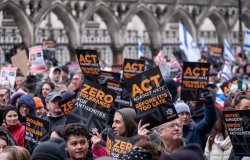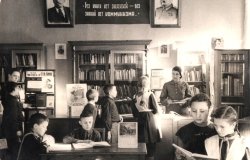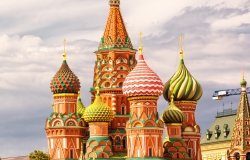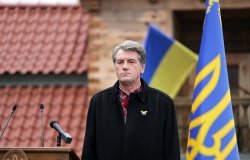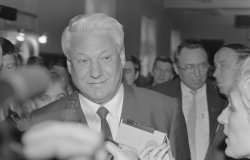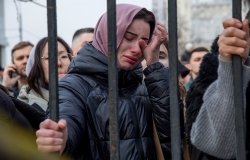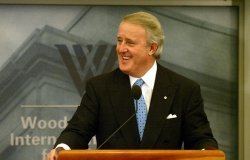2016 Summer Institute for Conducting Archival Research: A Glimpse into This Year’s Institute
A report on the 2016 Summer Institute for Conducting Archival Research, a four-day workshop providing in-depth training to 23 Ph.D. students from around the world on the theories and practice of conducting archival research at the dissertation level.
“I found SICAR to be engaging, well organized, and highly informative. [It] is true that there is little archival training in graduate school. In this respect, SICAR is an indispensable supplement to my training that… will make me a better student, researcher, and historian.”—2016 SICAR Student Participant

The 2016 SICAR participants
During the week of 24-27 May, 2016, the Wilson Center’s History and Public Policy Program, in cooperation with The George Washington University’s Cold War Group, hosted the 2016 Summer Institute for Conducting Archival Research (SICAR). An intensive four-day workshop, SICAR provided in-depth training to 23 Ph.D. students from around the world on the theories and practice of conducting archival research at the dissertation level.
Although archival research is a critical component of many academic disciplines, it is virtually never taught at the graduate level. Often is the case that students arrive at an archive, attempting to conduct research—through trial and error—with little to no formal instruction. Such is the experience of many graduate students. With this educational gap in mind, SICAR aims to provide a foundational introduction and overview of archives and archival research.
SICAR 2016 student participants came from 18 universities in 8 countries and individually represented over 10 different nationalities. Students’ research covered topics in field of history, political science, and international relations. Examples of dissertation themes included US-East Asian relations, Cold War narratives in non-European countries, nuclear disarmament, national identity and nation-building policy, social development in Pakistan, and the history of women’s rights movements in South Africa.
During the course of the SICAR 2016, participants actively engaged in a series of lectures presented by world class faculty and researchers. Presenters at this year’s Summer Institute included Elizabeth Charles (Office of the Historian of the U.S. Department of State), Malcolm Byrne (National Security Archive), Hope Harrison (George Washington University), David Langbart (National Archives and Records Administration), Trudy Peterson (Certified Archivist), Elizabeth Saunders (George Washington University), and Christa Williford (Council on Library and Information Resources), among many other distinguished speakers.
From practical advice on country-specific archives to workflow organizational strategies, SICAR offered participants the intellectual tools and foundational tips for how best to conduct archival research. Lecture topics included panels on “Preparing to Go to An Archive,” “Researching in Foreign Archives,” “Organizing Your Materials and Creating and Managing Your Archival Digital Workflows,” and “Getting Your Research Published” to mention a few.
In addition to the presentations, students had the opportunity to learn from their fellow SICAR participants through topic-specific breakout sessions, tailored for discussion of their dissertation themes. Students also benefited from the collegial environment of SICAR, which offered important networking opportunities with leading experts and fellow graduate students.
On the last day of SICAR, facilitators asked student participants to provide feedback in an open-ended, anonymous survey. All 23 students responded to the survey, offering overwhelmingly positive comments about the entire program. Here are a few examples of what students had to say about this year’s SICAR:
- “An extremely valuable experience.”
- “The program greatly complements the lack of archival method class[es] in PhD program[s].”
- “The workshop was well organized, and truly educational. Each theme of the workshop sessions was the very information I needed to proceed with my dissertation project.”
- “Highly recommended for anyone interested in engaging in serious historical investigation.”
- “It was an excellent program. I learned a lot and finished the week with a long list of resources to look at and things to do.”
- “I found SICAR to be engaging, well organized, and highly informative. [It] is true that there is little archival training in graduate school. In this respect, SICAR is an indispensable supplement to my training that… will make me a better student, researcher, and historian.”
All SICAR 2016 feedback will be analyzed, recorded and applied to future Summer Institutes in the hopes that the program will continue to grow and improve over the years.
The 2016 Summer Institute for Conducting Archival Research was made possible through the generous support of the Sidney Stern Memorial Trust.
The Wilson Center and George Washington University are currently seeking funds in order to continue hosting SICAR on an annual basis. Details and application instructions for the 2017 Summer Institute will be posted in late 2016.
Related Programs

History and Public Policy Program
The History and Public Policy Program makes public the primary source record of 20th and 21st century international history from repositories around the world, facilitates scholarship based on those records, and uses these materials to provide context for classroom, public, and policy debates on global affairs. Read more

Cold War International History Project
The Cold War International History Project supports the full and prompt release of historical materials by governments on all sides of the Cold War. Through an award winning Digital Archive, the Project allows scholars, journalists, students, and the interested public to reassess the Cold War and its many contemporary legacies. It is part of the Wilson Center's History and Public Policy Program. Read more

Nuclear Proliferation International History Project
The Nuclear Proliferation International History Project is a global network of individuals and institutions engaged in the study of international nuclear history through archival documents, oral history interviews, and other empirical sources. At the Wilson Center, it is part of the Wilson Center's History and Public Policy Program. Read more

North Korea International Documentation Project
The North Korea International Documentation Project serves as an informational clearinghouse on North Korea for the scholarly and policymaking communities, disseminating documents on the DPRK from its former communist allies that provide valuable insight into the actions and nature of the North Korean state. It is part of the Wilson Center's History and Public Policy Program. Read more

Hyundai Motor-Korea Foundation Center for Korean History and Public Policy
The Center for Korean History and Public Policy was established in 2015 with the generous support of the Hyundai Motor Company and the Korea Foundation to provide a coherent, long-term platform for improving historical understanding of Korea and informing the public policy debate on the Korean peninsula in the United States and beyond. Read more
